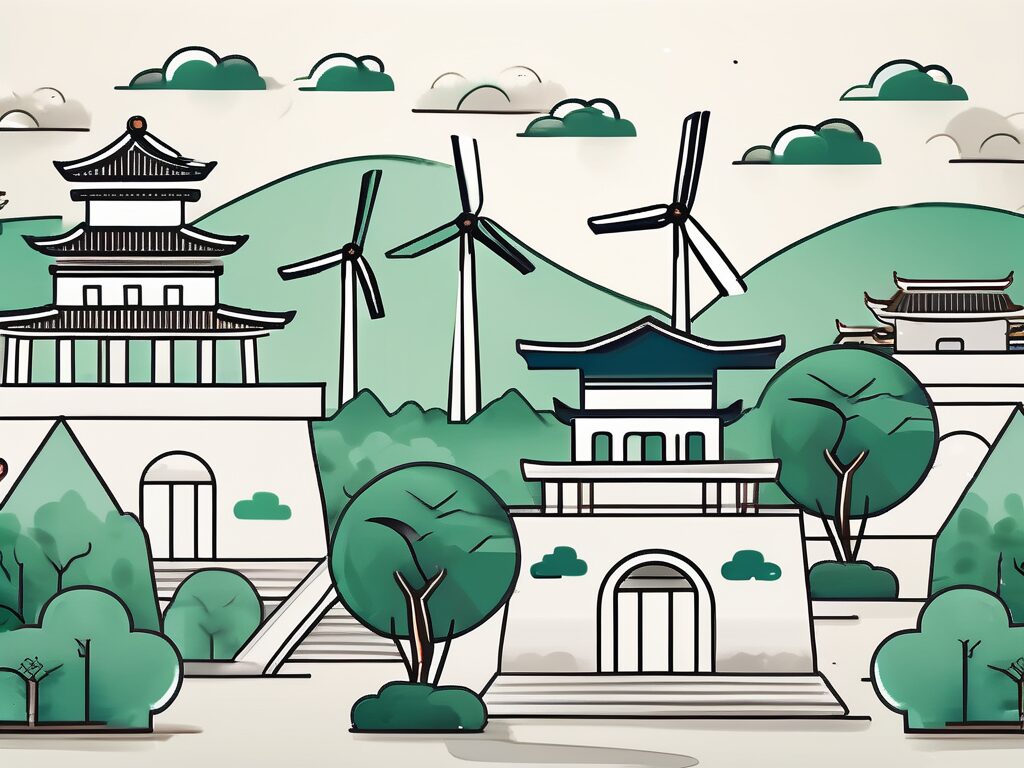Environmental education is a vital component of a sustainable future, and China, as one of the world’s leading economies, plays a significant role in this global endeavour. The importance of environmental education has been recognised in China, and the country has made considerable strides in incorporating it into its educational system. This article delves into the world of environmental education in China, particularly for those with a Master’s in Education, highlighting six key points.
1. The Importance of Environmental Education
Environmental education is not just about learning the names of plants or understanding weather patterns. It’s about fostering an understanding of how these elements interact within our world, and how our actions can impact them. In a country like China, with its vast population and rapid industrialisation, the importance of this education cannot be overstated.
For those with a Master’s in Education, this presents an opportunity to be at the forefront of this vital field. As educators, they have the power to shape young minds and instil a sense of responsibility towards the environment. It’s akin to planting a tree; the effects may not be immediately visible, but with time and care, it can grow into something that benefits the entire community.
2. The State of Environmental Education in China
China’s approach to environmental education has evolved over the years. In the past, the focus was primarily on knowledge transfer, with students learning facts about the environment. However, this has shifted towards a more holistic approach, where students are encouraged to understand the interconnectedness of the environment and their role within it.
This shift is similar to the evolution of environmental education in other parts of the world. For example, in the UK, there has been a similar move towards a more integrated approach to environmental education. This shows that China is not alone in its journey, but part of a global movement towards better environmental education.
3. The Role of a Master’s in Education
A Master’s in Education equips individuals with the skills and knowledge to effectively teach and inspire students. In the context of environmental education, this means being able to convey complex concepts in a way that students can understand and relate to.
Just as a chef uses a variety of ingredients to create a delicious meal, an educator with a Master’s degree uses a mix of teaching strategies to engage students. This could involve field trips, interactive activities, or even incorporating technology into lessons. The goal is to make learning about the environment not just informative, but also enjoyable and engaging.
4. Challenges in Environmental Education
Despite the progress made, there are still challenges to overcome in environmental education in China. One of these is the lack of resources, particularly in rural areas. This is a challenge faced by many countries, not just China. For instance, schools in remote areas of Australia also struggle with access to resources for environmental education.
Another challenge is changing attitudes towards the environment. While awareness is growing, there is still a need to shift mindsets from viewing the environment as a resource to be used, to seeing it as something to be cared for and preserved. This is where educators with a Master’s in Education can play a crucial role, by fostering a culture of environmental stewardship among their students.
5. Opportunities in Environmental Education
Despite the challenges, there are also numerous opportunities in environmental education in China. The country’s commitment to environmental sustainability, as seen in its recent pledge to achieve carbon neutrality by 2060, signals a growing demand for environmental education.
Furthermore, advancements in technology provide new avenues for teaching and learning about the environment. For example, virtual reality can be used to simulate different environments, allowing students to explore and learn in ways that were not previously possible. This is similar to how museums in the United States are using technology to enhance learning experiences.
6. The Future of Environmental Education
The future of environmental education in China, and indeed the world, looks promising. With increased awareness of environmental issues and the role education plays in addressing them, there is a growing demand for qualified and passionate educators.
For those with a Master’s in Education, this presents an exciting opportunity to make a real difference. By equipping the next generation with the knowledge and values they need to care for the environment, they can help shape a more sustainable future. Just as a gardener nurtures a seed into a blooming flower, educators can nurture their students into environmentally conscious citizens.
In conclusion, environmental education in China is a field ripe with opportunities and challenges. For those with a Master’s in Education, it offers a chance to apply their skills in a meaningful and impactful way. As China continues its journey towards environmental sustainability, the role of environmental education will only become more important.
Take the Lead in Environmental Education with The IQTS at UWE
Are you ready to elevate your impact in environmental education? The International Qualified Teacher Status (iQTS) programme at UWE is your pathway to becoming a globally recognized educator. With our Level 7 qualification, you can overcome the barriers of strict international school requirements, enhance your career progression with a significant increase in promotion rates and salary, connect with a vast professional community, and gain a deep understanding of international curricula. Embrace the flexibility of online study and balance your professional development with your current commitments. Make Your Next Step towards a more sustainable future in education with the iQTS programme.

